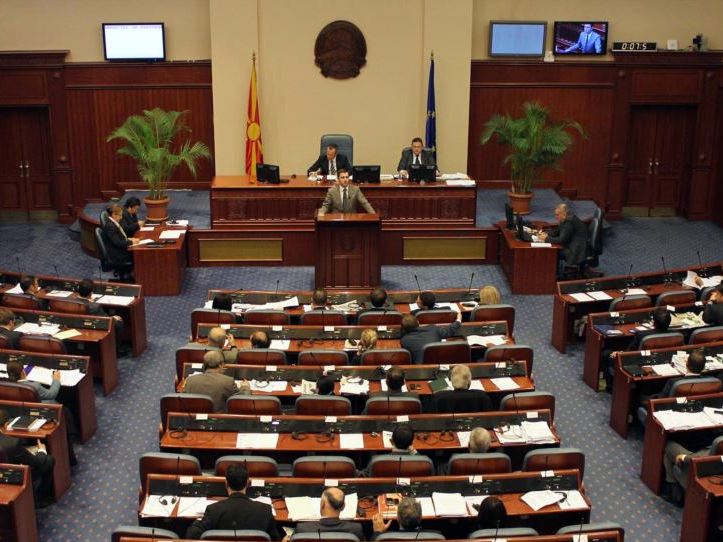Macedonia’s main parties are soon to sign a memorandum on EU integration, which it is hoped, among other things, will help restore the country’s tarnished image in Brussels.
 After signing a long-awaited report into last year’s incident in parliament, which caused a political crisis and almost derailed the country’s EU agenda, Macedonia’s government and opposition are drafting a memorandum that will oblige them to cooperate on EU integration.
After signing a long-awaited report into last year’s incident in parliament, which caused a political crisis and almost derailed the country’s EU agenda, Macedonia’s government and opposition are drafting a memorandum that will oblige them to cooperate on EU integration.
The draft obliges both sides to “restrain themselves from actions that may hamper or harm the European integration process, and solve all differences through dialogue”.
They will also pledge “to conduct an active dialogue on the country’s Euro-integration process” and to “act within institutions”.
The opposition Social Democrats, SDSM, received the draft from the ruling VMRO DPMNE party of Prime Minister Nikola Gruevski on Friday.
“We have sent the memorandum back to VMRO DPMNE along with few supplements and changes,” one SDSM legislator, Igor Ivanovski, said.
However, he said that despite the changes that bring into focus issues like freedom of speech, fight against corruption and election reforms, he expected the draft to be signed “as soon as possible”.
The incidents in parliament last December 24 – when government parties passed a budget for 2013 in the space of a few minutes, after opposition MPs and journalists were expelled from the chamber by police – caused a lengthy political crisis.
The crisis ended with the signing of the March 1 agreement between the government and the opposition, brokered by the European Union.
Along with producing a report on the incident, both sides then agreed to sign the EU memorandum and so reaffirm their commitment to the process.
After much deliberation between the parties the report was signed last week and a task group has since been formed in parliament to implement the recommendations, which aim to reduce the likelihood of further similar incidents.
Foreign Minister Nikola Poposki said he hoped the signing of the memorandum would additionally improve Macedonia’s image in Brussels.
“I see nothing problematic in the memorandum. All political players who wish to contribute to our EU agenda have no excuse not to sign it,” Poposki said on Monday.
It is widely accepted that the success of the government and the opposition in signing off on the report into the events of last December, as well as the joint memorandum, will affect the tone of the forthcoming European Commission annual report on the country’s progress. The European report is due out in mid-October.
Every European Commission report since 2009 has recommended a start to membership talks for Macedonia.
But it has never been offered a start date because of a Greek blockade related to the dispute over the country’s name. Greece insists that Macedonia’s name implies territorial claims to its own northern province, also called Macedonia.
Balkan Insight















